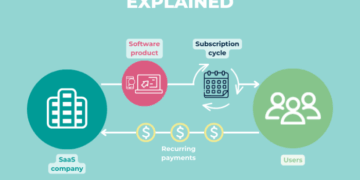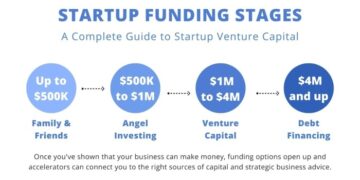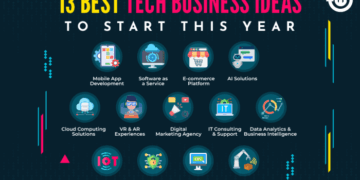Embarking on the journey of starting a profitable startup business in 2025 requires a strategic approach and a keen understanding of the evolving business landscape. From key steps to innovative ideas, this guide delves into the intricacies of launching a successful venture in the upcoming year.
As we navigate through the essential components of building a startup in 2025, we uncover the critical factors that can pave the way for sustainable growth and long-term success in the competitive market.
Essential Steps for Starting a Profitable Startup Business in 2025
Starting a profitable startup business in 2025 requires careful planning and execution. Here are the key steps to consider:
Market Research and Validation
Market research is crucial for understanding your target audience, competition, and industry trends. It helps you validate your business idea and identify potential opportunities and challenges. Conduct thorough market research to gather valuable insights that will guide your business strategy.
- Identify your target market and understand their needs and preferences.
- Analyze your competitors to identify gaps in the market that your business can fill.
- Assess industry trends and potential challenges that may impact your business.
- Validate your business idea through surveys, focus groups, and prototype testing.
Market research is the foundation of a successful startup, providing valuable insights that can shape your business strategy and increase your chances of success.
Innovative Business Ideas for 2025
In the ever-evolving landscape of startups, having a unique business idea can set you apart from the competition and pave the way for success. As we look ahead to 2025, several innovative business ideas have the potential to be profitable and thrive in the market.
Let's explore some of these ideas and how they can shape the startup opportunities in the coming years.
1. Virtual Reality (VR) Experiences
With the advancements in technology, virtual reality has become more accessible and immersive. Starting a business that offers unique VR experiences, such as virtual travel tours, virtual events, or VR gaming arcades, can cater to the growing demand for interactive and engaging entertainment options.
2. Sustainable and Eco-Friendly Products
As consumers become more environmentally conscious, there is a rising demand for sustainable and eco-friendly products. Starting a business that focuses on creating biodegradable packaging, upcycled fashion, or eco-friendly home goods can tap into this growing market and contribute to a greener future.
3. Health-Tech Solutions
The health and wellness industry is constantly evolving, and with the integration of technology, there is a vast opportunity for startups to create innovative health-tech solutions. Developing personalized health apps, remote monitoring devices, or telemedicine platforms can revolutionize the way healthcare is delivered and accessed.
4. Smart Home Automation
With the rise of smart devices and IoT technology, smart home automation is set to become a booming industry. Starting a business that offers smart home solutions, such as energy-efficient appliances, home security systems, or AI-powered assistants, can cater to the increasing demand for connected and automated living spaces.
5. Personalized E-Commerce Experiences
In the age of personalization, e-commerce businesses that offer customized shopping experiences are gaining popularity. Starting a business that utilizes AI algorithms to recommend personalized products, offers virtual try-on features, or provides interactive shopping experiences can attract and retain customers in a competitive market.
Leveraging Technology for Startup Success
Technology plays a crucial role in the success of startups in 2025, offering tools and solutions that can streamline operations and boost productivity. By harnessing advancements in artificial intelligence, automation, and data analytics, startups can optimize their business processes and gain a competitive edge in the market.
Artificial Intelligence in Business
Artificial intelligence (AI) can revolutionize the way startups operate by automating repetitive tasks, analyzing large datasets, and providing valuable insights for decision-making. AI-powered tools such as chatbots for customer service, predictive analytics for sales forecasting, and personalized recommendations for marketing campaigns can significantly improve efficiency and effectiveness.
Automation for Efficiency
Automation tools enable startups to automate routine tasks, reduce manual errors, and increase operational efficiency. From automated email marketing campaigns to robotic process automation for backend operations, startups can save time and resources while improving overall productivity. Leveraging automation allows startups to focus on innovation and growth rather than mundane tasks.
Data Analytics for Business Insights
Data analytics tools empower startups to make data-driven decisions based on real-time insights and trends. By analyzing customer behavior, market trends, and operational performance, startups can identify opportunities for growth, optimize strategies, and improve decision-making. Tools like Google Analytics, Tableau, and Power BI can help startups harness the power of data to drive business success.
Building a Strong Brand and Marketing Strategy
Building a strong brand and marketing strategy is crucial for the success of a startup in 2025
The Importance of Branding
Branding plays a significant role in shaping how customers perceive your startup. A strong brand identity helps establish credibility, fosters customer loyalty, and sets you apart in a competitive market. By defining your brand values, mission, and unique selling proposition, you can create a compelling narrative that resonates with your target audience.
Creating a Compelling Brand Identity and Positioning Strategy
- Define your brand values and mission statement to guide your business decisions and resonate with your target audience.
- Create a memorable logo, color palette, and visual elements that reflect your brand's personality and values.
- Identify your target market and develop a positioning strategy that highlights your competitive advantage and addresses customer needs.
- Consistently communicate your brand message across all touchpoints to build brand recognition and trust.
Innovative Marketing Tactics and Channels
- Utilize social media platforms like TikTok, Instagram, and LinkedIn to engage with your target audience and build brand awareness.
- Explore influencer partnerships and user-generated content to reach new customers and increase brand visibility.
- Implement personalized marketing strategies using AI and data analytics to deliver targeted messaging and enhance customer experience.
- Experiment with interactive content, such as live streams, quizzes, and AR/VR experiences, to create meaningful connections with your audience.
Financial Planning and Funding Options
Starting a business in 2025 requires careful financial planning and exploring various funding options to ensure success. It is essential to understand the key financial considerations and how to effectively manage cash flow to sustain and grow your startup.
Key Financial Considerations
- Estimate your startup costs accurately, including expenses for product development, marketing, technology, and operations.
- Create a detailed financial plan outlining revenue projections, profit margins, and break-even analysis.
- Consider the impact of economic factors and market trends on your business finances.
Funding Options for Startups
- Venture Capital:Venture capitalists invest in high-growth potential startups in exchange for equity ownership. They provide not only funding but also mentorship and industry connections.
- Angel Investors:Angel investors are individuals who invest their own money in startups in exchange for equity. They often provide early-stage funding and guidance to entrepreneurs.
- Crowdfunding:Crowdfunding platforms allow startups to raise capital from a large number of individual investors. This option can help validate your idea and generate buzz around your business.
Creating a Solid Financial Plan
- Develop a detailed budget that allocates funds to different aspects of your business, including marketing, research, and development.
- Regularly monitor and track your financial performance to identify areas of improvement and make informed decisions.
- Build a financial cushion for unexpected expenses or fluctuations in revenue to ensure financial stability.
Managing Cash Flow Effectively
- Implement cash flow forecasting to predict incoming and outgoing cash and plan accordingly.
- Negotiate favorable payment terms with suppliers and vendors to optimize cash flow.
- Explore financing options like lines of credit or small business loans to cover short-term cash flow gaps.
Final Wrap-Up
In conclusion, the roadmap to starting a profitable startup business in 2025 is paved with opportunities for innovation and growth. By leveraging technology, embracing unique business ideas, and focusing on financial planning, aspiring entrepreneurs can set themselves up for success in the dynamic landscape of the future.
Questions Often Asked
What are the key financial considerations when starting a business in 2025?
When starting a business in 2025, it's crucial to analyze the financial landscape, consider potential expenses, and create a detailed financial plan to ensure sustainability.
How can technology be utilized to streamline operations for startups in 2025?
Advancements in technology offer opportunities for startups to automate processes, improve efficiency, and enhance productivity through tools like AI, automation, and data analytics.
What are some innovative marketing tactics to reach target customers in 2025?
Startups can explore influencer marketing, personalized content strategies, and interactive campaigns to engage with their target audience effectively in 2025.








